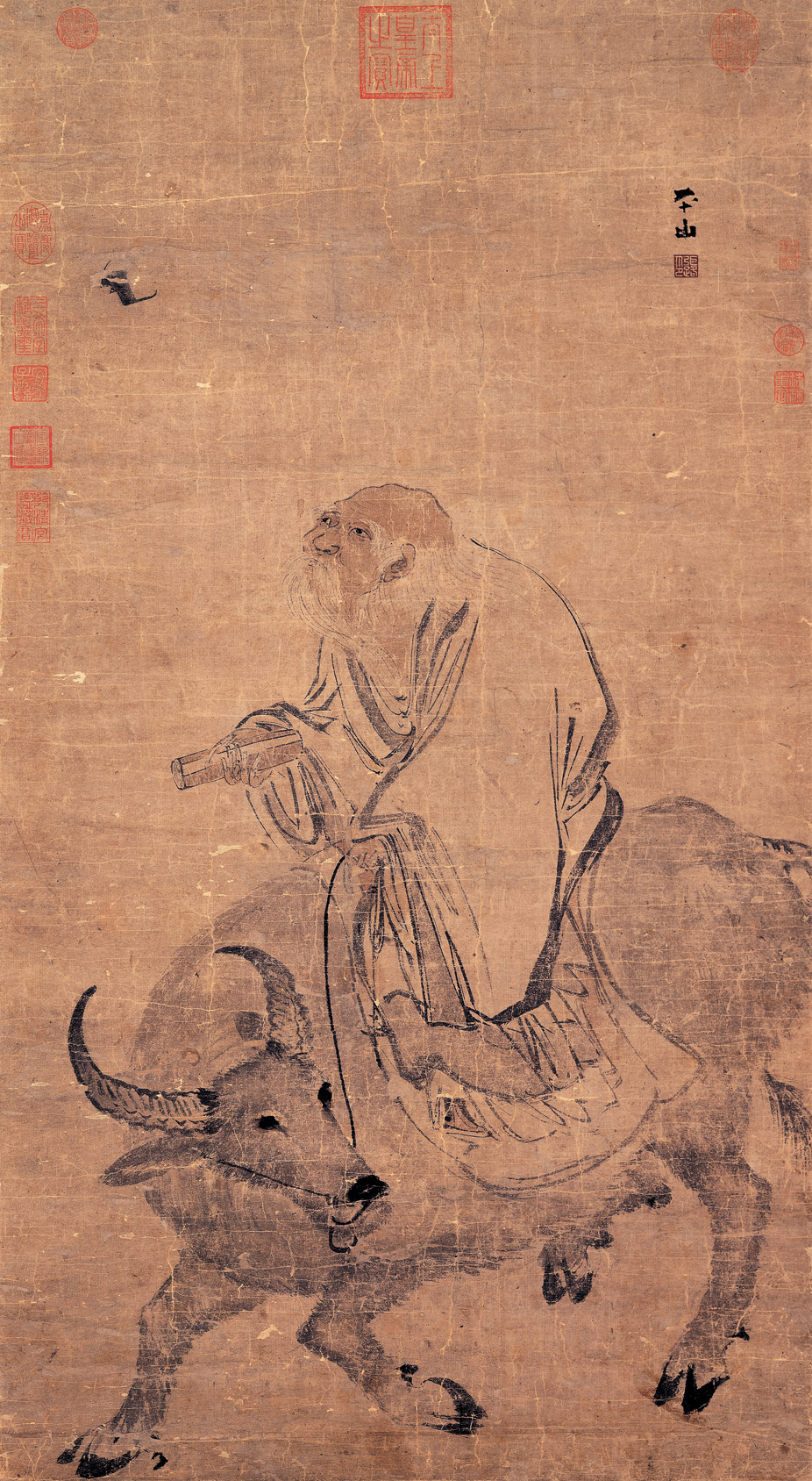Laozi frasi celebri
Frasi sul mondo di Laozi
Attribuite
Origine: Citato in Victor Lebrun, Devoto a Tolstoj, traduzione di Dino Naldini, Lerici Editori, Milano, 1963, p. 104. Citato anche in Pietro Citati, Tolstoj, Longanesi, Milano, 1983, p. 279: «Ecco come bisogna essere – come l'acqua. Niente ostacoli – l'acqua scorre: uno sbarramento, l'acqua si arresta. Lo sbarramento si rompe – l'acqua scorre: un recipiente quadrato – è quadrata; rotondo – essa è rotonda. Ed è per questo che essa è più importante di tutto e più forte di tutto».
XXII, Parinetto
Frasi sulla forza di Laozi
libro Il libro del Tao
XXXIII, Parinetto
Tao Te Ching
LXXVI, Parinetto
Tao Te Ching
Laozi Frasi e Citazioni
“S'impasta l'argilla per fare un vaso | e nel suo non-essere si ha l'utilità del vaso.”
XI, Parinetto
Tao Te Ching
“Mostrati semplice e mantienti grezzo, | abbi poco egoismo e scarse brame.”
XIX, Parinetto
Tao Te Ching
XXX, Parinetto
Tao Te Ching
XXXI, Parinetto
Tao Te Ching
“Solo chi non si affaccenda per vivere | è più saggio di chi la vita tiene in pregio.”
LXXV, Parinetto
Tao Te Ching
“Preserva l'Uno dimorando nelle due anime: | sei capace di non farle separare?”
X, Parinetto
Tao Te Ching
XIV, Parinetto
Tao Te Ching
“Il Cielo e la Terra non usano carità, | tengono le diecimila creature per cani di paglia.”
V, Parinetto
Tao Te Ching
“Il rito è labilità della lealtà e della sincerità | e foriero di disordine.”
XXXVIII, Parinetto
Tao Te Ching
XLI, Parinetto
Tao Te Ching
“Chi si dedica allo studio ogni di' aggiunge, | chi pratica il Tao ogni di' toglie.”
XLVIII, Parinetto
Tao Te Ching
Laozi: Frasi in inglese
“This source is called darkness.
Darkness born from darkness.
The beginning of all understanding.”
Origine: Tao Te Ching, Ch. 1, as translated by J.H.McDonald (1996) http://www.wright-house.com/religions/taoism/tao-te-ching.html [Public domain translation]
Contesto: The tao that can be described
is not the eternal Tao.
The name that can be spoken
is not the eternal Name.
The nameless is the boundary of Heaven and Earth.
The named is the mother of creation.
Freed from desire, you can see the hidden mystery.
By having desire, you can only see what is visibly real.
Yet mystery and reality
emerge from the same source.
This source is called darkness.
Darkness born from darkness.
The beginning of all understanding.
A longer paraphrase of this quotation, with modern embellishments, is often attributed to Laozi: see "Misattributed" below.
Origine: Tao Te Ching, Ch. 17
“When men lack a sense of awe, there will be disaster.”
Origine: Tao Te Ching, Chapter 72, translated by Gia Fu Feng
“The more laws and order are made prominent, the more thieves and robbers there will be.”
Variant translation: The more prohibitions there are, the poorer the people will be.
Origine: Tao Te Ching, Ch. 57
“What I hear, I forget. What I say, I remember. What I do, I understand.”
This quotation has also been misattributed to Confucius.
Tell me and I [will] forget. Show me and I [will] remember. Involve me and I [will] understand.
不聞不若聞之,聞之不若見之,見之不若知之,知之不若行之;學至於行之而止矣
From Xun Zi 荀子
Misattributed
Variant translation by Lin Yutang: "He who knows others is learned; he who knows himself is wise".
Origine: Tao Te Ching, Ch. 33, as interpreted by Stephen Mitchell (1992)
Variants:
A good traveller has no fixed plan and is not intent on arriving.
As quoted in In Search of King Solomon's Mines (2003) by Tahir Shah, p. 217
A true traveller has no fixed plan, and is not intent on arriving.
Origine: Tao Te Ching, Ch. 27, as interpreted by Stephen Mitchell (1992)
“To attain knowledge, add things every day.
To attain wisdom, remove things every day.”
Origine: Tao Te Ching, Ch. 48
“Governing a large country is like frying a small fish.”
Origine: Tao Te Ching, Ch. 60
“The Tao is called the Great Mother:
empty yet inexhaustible,
it gives birth to infinite worlds.”
Origine: Tao Te Ching, Ch. 6, as interpreted by Stephen Mitchell (1992)
“When the center does not hold, the circle falls apart.”
This is a paraphrase of lines in "The Second Coming" by William Butler Yeats.
Misattributed
“Qiān lǐ zhī xíng shǐ yú zú xià.”
千里之行始於足下。
A journey of a thousand li starts with a single step.
Variant translations:
A journey of a thousand [miles] starts with a single step.
A journey of a thousand miles started with a first step.
A thousand-mile journey starts from your feet down there.
As translated by Dr. Hilmar Klaus
Every journey begins with a single step.
Origine: Tao Te Ching, Ch. 64, line 12
